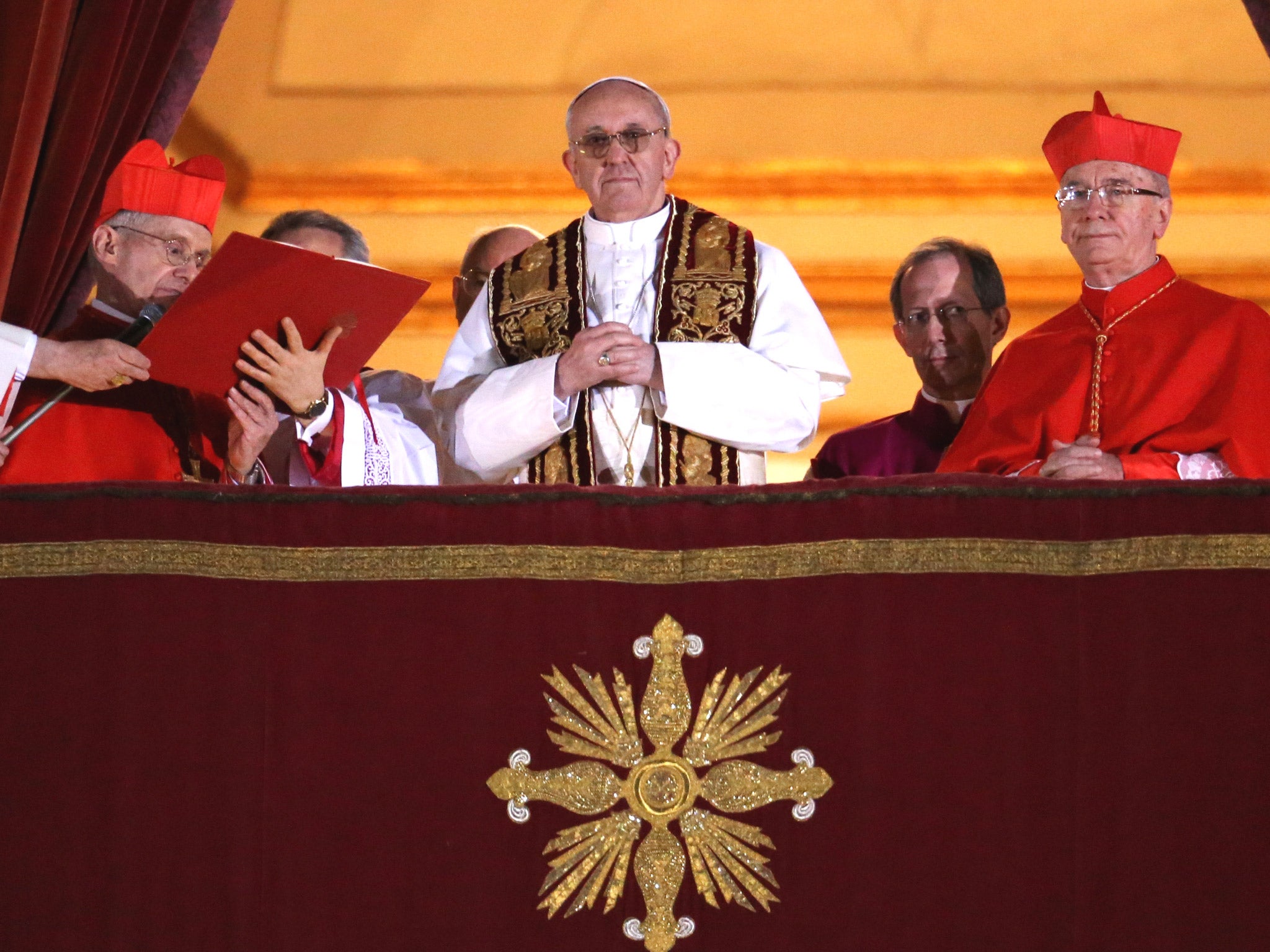Pope Francis is both a continuation of the past and also something very different for the future
Whatever end of the spectrum they stand in, most Catholics know their church is in trouble. Pope Francis may just be the miracle they've been waiting for

Your support helps us to tell the story
From reproductive rights to climate change to Big Tech, The Independent is on the ground when the story is developing. Whether it's investigating the financials of Elon Musk's pro-Trump PAC or producing our latest documentary, 'The A Word', which shines a light on the American women fighting for reproductive rights, we know how important it is to parse out the facts from the messaging.
At such a critical moment in US history, we need reporters on the ground. Your donation allows us to keep sending journalists to speak to both sides of the story.
The Independent is trusted by Americans across the entire political spectrum. And unlike many other quality news outlets, we choose not to lock Americans out of our reporting and analysis with paywalls. We believe quality journalism should be available to everyone, paid for by those who can afford it.
Your support makes all the difference.In the days running up to this week’s Papal Conclave I did a brief ring round of Catholics about what the Church needed from the man who would become the 266 Pope. The most eloquent response came from an elderly priest who used just two words: “A miracle”.
Whatever end of the spectrum they stand in – be they the type who pines for a radical theological revolution or insists on a continuation of orthodox consistency – most Catholics know their church is in trouble. They are more than aware that they need a Pontiff who will genuinely make his mark in history.
The list of trials facing Catholicism is as long as it is daunting: plummeting church attendance and a massive shortage of new priests in the secular West; a widening theological chasm between the developed and developing world over what is socially acceptable; interreligious animosity and distrust; the seemingly ever-recurring sex abuse scandals and a Vatican bureaucracy that all but the most naïve of commentators will admit is riven with corruption, incompetence and political infighting.
How Cardinal Jorge Mario Bergoglio will prioritise these problems remains to be seen but he will need to tackle them nonetheless.
Pope Francis is both a continuation of the past and something very different. Theologically he is an orthodox conservative like his predecessor Benedict XVI. No-one will be expecting him to take the Catholic Church into a brave new world where homosexuality is suddenly accepted and women are ordained.
But he is a radical choice in so many other ways. Most will concentrate on the firsts – the first Latin American pope, the first Jesuit and the first Francis. But his real radicalism lies elsewhere. Above all he is no Vatican insider, unlike so many of the supposed frontrunners, and is serious about a major overhaul of the bureaucrats in Rome. He also lives a deeply ascetic life, cooking his own meals and taking the bus to work. Compared to those who spend their time surrounded by the obscene wealth concentrated in Rome, Cardinal Bergoglio will be able to genuinely sympathise and empathise with the world’s poor like no other recent Pope.
His national heritage also gives the Catholic Church a much needed boost of geo-political realism. It finally has a leader who hails from the developing world, where the vast majority of the world’s Catholics live and where the Church is actually expanding. But might this handicap him when it comes to confronting secularism in the West?
Part of the reason Benedict XVI was elected Pope was his determination to “re-evangelise” those areas of the world – particularly in Europe and North America – where religion has gone from being the protagonist to a cameo. He never had time to carry out his dream. Bergoglio has a distinctly evangelical flavour, but will he stop what the Vatican sees as the rot in the West? Ironically it is in increasingly secular countries like Britain where practising Catholic populations and clergy numbers have plummeted in recent decades that the nature and character of the next Pope could have the most profound effect. If Rome’s new head reigns for as long as John Paul II, the chances are he will either be remembered for halting the decline of Catholicism in the secular world – or failing to stop it altogether.
So what happens next for Pope Francis?
The new Pope has a clear first priority: stop and prevent the sexual abuse of young boys
Pope Francis I: the humble man who moved out of archiepiscopal palace into a simple apartment
Argentina celebrates as their own Catholic leader is elected Pope Francis
Join our commenting forum
Join thought-provoking conversations, follow other Independent readers and see their replies
Comments